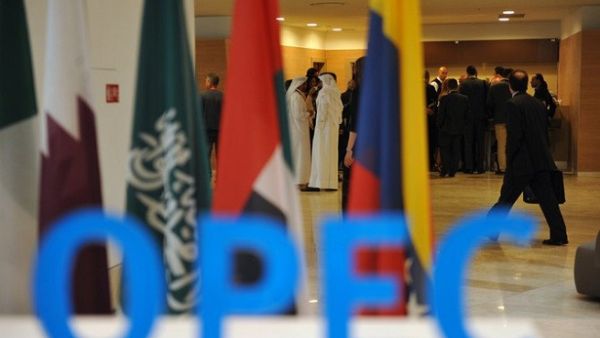Oil prices rose nearly 2 percent on Monday, recording the biggest daily rise in more than a month, after Saudi Energy Minister Khalid al-Falih said that the Organization of the Petroleum Exporting Countries (OPEC) will hold its position as the “World Bank” for global oil markets.
He added that OPEC and its para-organization allies have agreed that technical analysis shows the need to balance the market by cutting next year's oil supply by about 1 million barrels per day (bpd) compared to October levels.
Speaking on the sidelines of the Abu Dhabi International Exhibition and Conference, Falih explained that the demand from Saudi clients in December will fall by over half a million barrels per day compared to November for seasonal reasons and that there is consensus on forecasts showing a resulting build up in stocks.
Read More
OPEC Trying to Sustain Market Confidence Amidst Global Uncertainties
Iran Accuses Saudi for Violating OPEC Pact Under US Pressure
Top oil producers, meeting in Abu Dhabi on Sunday, demanded new “strategies” based on production adjustments to deal with market discrepancies between high supply and low demand.
Haitham Al-Ghais, OPEC Governor for Kuwait the told Kuwait News Agency (KUNA) that the meeting “discussed a proposal for some kind of cut in (crude) supply next year,” adding that the proposal did not specify the amount of reduction.
OPEC and its allies, including Russia, agreed in June to ease production restrictions in place since 2017 following calls by US President Donald Trump to keep oil prices down to compensate for Iran supply being cut back due to sanctions.
Oil prices have been under pressured by a market glut, despite new US sanctions on Iran. The market is negatively affected by forecasts showing a growth in supply surpluses and a slowing down in demand in 2019.
Falih said Saudi Arabia was not prepared to dismantle OPEC and believed that the organization would remain the chief oil price regulator for a long time, stressing that the body is important for keeping the international oil market in check.
He told reporters that Saudi Aramco's crude oil allocations to its customers would fall 500,000 bpd in December compared with November, due to a seasonal drop in demand. This means an estimated 0.5 percent reduction in world oil supplies.








